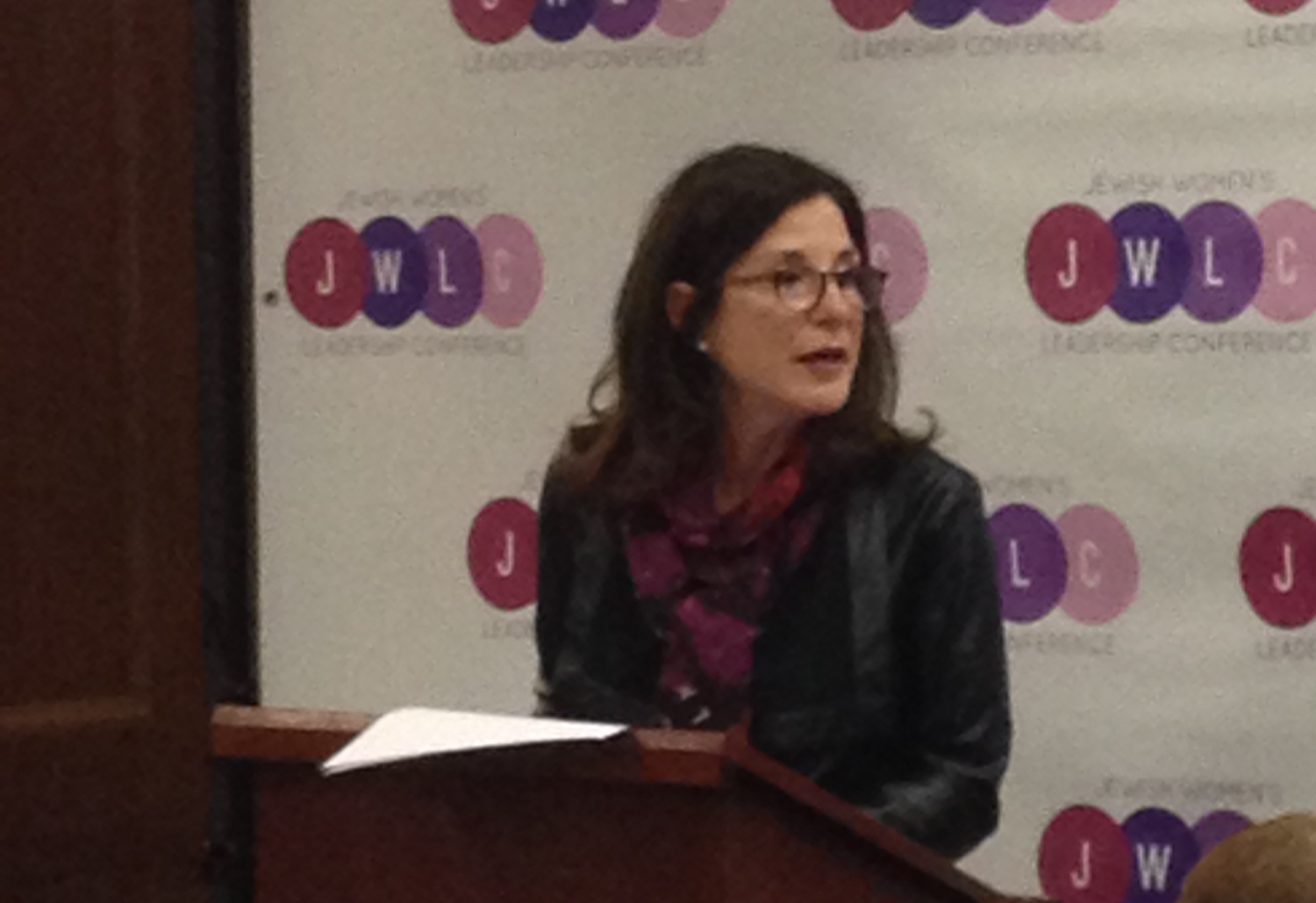By Jacob Strom
For The Diamondback
Loribeth Weinstein, the CEO of Jewish Women International, arrived at the University of Maryland Hillel on Sunday afternoon to discuss what being a female Jewish leader means to her.
She and seven other female speakers came to the Jewish Women’s Leadership Conference to share about the connection between their faith and their leadership. About 120 women turned out, eager to learn how to develop their own leadership skills.
“My life is laced with Jewish values,” Weinstein said. “They’re a part of who I am. They’re the lens through which I see the world; they represent the great lessons that I learned, in particular from my father and my grandfather, about leadership, about compassion, and about personal responsibility.”
This was Hillel’s third annual Jewish Women’s Leadership Conference. The event aimed to spread insight into how others can work to lead successful work lives while considering religion, too.
“All of the women that we invited, we selected them and we reached out to them because we really look to them as role models,” said Rivka Golding, a senior Jewish studies major and co-chairwoman of the conference. “People are able to see where they could be in two years.”
The conference provided skill sessions at Van Munching Hall that covered different topics pertinent to becoming a positive female leader. One topic addressed was the challenge of being a woman in a male-dominated workplace.
“I had no women in my company to talk to,” Weinstein, the keynote speaker, said of her experience working for a political consulting firm. “I was really the token woman at the time.”
The speakers also addressed work-life balance, stressing the importance of standing on equal footing with your spouse.
“Stand toe-to-toe with your life partner, and stand tall, because you want to make sure that you have equal footing,” said Abbie Weisberg, the CEO and executive director at Keshet, a nonprofit advocacy organization for Jewish people with special needs.
Weinstein also discussed the specific challenges Jewish women face in trying to balance their faith and work.
“The Shabbat issue has been very difficult,” she said, adding that leaving work on time to keep the day of rest is challenging. “What does it mean if you need to leave in the wintertime at 3 o’clock on a Friday?”
The event’s creators hoped to provide a strong spiritual pull for those who took part, said Raquel Weinberg, a sophomore community health major and co-chairwoman of the event.
“The coolest thing about this event is really seeing Jewish women and Jewish leadership in a different setting,” Weinberg said. “It brings a new meaning to what Judaism can mean in a Jewish setting.” Taylor Friedman, a sophomore economics major who also served as a member of the conference’s leadership committee, said Judaism impacts who a person is as a leader.
“Jewish leadership to me means responsible leadership,” Friedman said. “Becoming a leader is not just something to add to your own resume; it’s about being responsible and giving back to the community around you.”



